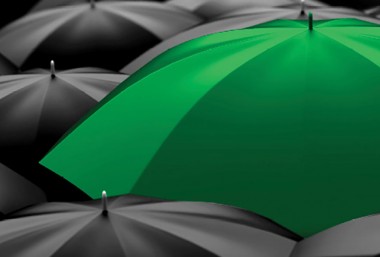Accidental discoveries often lead to amazing inventions – Teflon, saccharin, penicillin and the Cardiac pacemaker all came about as the result of happy accidents.
But accidental creations are not limited to inventions.
There are scores of examples of throwaway comments and innocent observations becoming marketable brands:
- The All Blacks name is said to have come from in an early London newspaper reporting that the team played as if they were "allbacks", but a subsequent typo led to references being to "All Blacks" and the name caught on.
- A seemingly innocuous comment by Sir Peter Blake about his wife buying him his lucky red socks led to red socks being sold to the public to help Team New Zealand's fundraising efforts.
- The word "Linsanity" was coined after little-known (and largely unwanted) NBA player Jeremy Lin became a star for the New York Knicks. The hype was referred to as "Linsanity" and soon people all over the world were trying to cash in on the LINSANITY name.
- The story of Levi Hawken and "Nek Minnit" has been well publicised in New Zealand.
Often this happens in a way that is hard to fathom or control, but astute marketers can in fact use this phenomenon to promote their products and messaging, particularly where they come out of promotional campaigns.
This can be done it two ways:
- Using your advertising campaign to create a very different offering in the hope that this will in turn, promote your underlying message.
- Where an aspect of your campaign goes viral and creates (deliberately or accidentally) a new brand, this can be leveraged to further promote your messages.
The campaigns by Yellow® that created a restaurant and a chocolate bar (the Taste of Yellow campaign) are great examples of deliberately using products to promote your underlying message.
But things get even more interesting when the same thing happens accidentally.
Harness the viral tidal wave
Advertisers may track when their adverts have gone viral, but what do you do to further leverage this? How about this:
- Identify what products might help to work with your campaign. A simple way of doing this is to put yourself in the shoes of someone who might try to rip it off - what brand would they use and for what products. For example, does your campaign include a great catchphrase that either lends itself to a t-shirt design, or could be used on other marketable goods?
- Apply for appropriate trade mark protection or the new brand. If it's good enough to rip off, chances are someone will do so. It's a lot easier (and cheaper) to protect your ideas early, rather than trying to regain your rights down the track.
- Either get those products to market, to further push the campaign's message, or alternatively, create a new revenue stream by licensing others to do so.
From 'Legend' to 'Ghost Chips'
All sounds good in theory, but maybe you don't think it really happens. "Show me the money", you might be saying.
Intellectual property lawyers watch what applications are filed in New Zealand, and this provides a great way to see who may want to rip off a brand by protecting it themselves. Of course, someone applied to register LINSANITY as a trade mark in New Zealand, but there are new opportunistic trade mark filings almost every month.
For example, the New Zealand Transport Agency's recent drink driving campaign (called 'Legend') became a viral hit, partly due to two memorable lines uttered by the protagonist:
"I've been internalising a really complicated situation in my head"
and
"You know I can't grab your ghost chips!"
The clever video quickly went viral and soon the campaign name 'Legend' was virtually forgotten. Suddenly everyone was talking about the 'Ghost Chips' advertisement.
Maybe that provided an opportunity for NZTA to assert their ownership of the trade mark GHOST CHIPS, and to use it to further re-enforce the campaign message.
It looks like no such thing happened, and last month a gentleman from Hamilton applied to register the trade mark GHOST CHIP for... you guessed it - potato chips.
We don't know whether NZTA is aware that someone else has claimed ownership of the GHOST CHIPS trade mark - but it seems likely that they soon will be.
An edited version of this column was published in Marketing magazine, May/June 2012